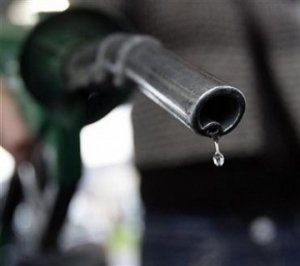
– As FCCPC promises to address key issues affecting food prices
Mkpoikana Udoma
Port Harcourt — Consumers, market leaders and traders of food produce in Port Harcourt, the Rivers State Capital have lamented the high cost of food produce in the country, blaming the surge in food prices on fuel price hikes.
The traders have also blamed the hyperinflation of food prices on the increasing insecurity in the Northern parts of the country, warning that if nothing is done to address the exorbitant food prices, Nigerians will start dying of hunger.
Speaking, the Secretary, Management Committee of Akachukwu Fruits and Vegetables Market inside Oil mill Market in Port Harcourt, Elder Daniel Kalu, who has been in the business for over 30 years, blamed the hyperinflation of food on multiple taxation and insecurity.
Kalu urged the federal government to tackle insecurity in the Northern parts of the country, as well as fuel price and illegal road blocks.
“I have been in this business for more than 30 years. The problem is multiple taxation,
Every state has produce checkpoints which they extort money from us. I don’t think the foreign exchange rate is the problem of food inflation, the high cost of food is man-made.
“Between Benue and Port Harcourt, every truckload of goods must spend between N190,000 and N250,000 on roadblocks. The driver has to settle various checkpoints and roadblocks on the road by Police, touts, community youths, Local Government levies, etc. All these add up to the price of the goods.
“Secondly, insecurity. Where I used to buy tomatoes and pepper in the North, people are no longer going to the farm because of insecurity.”
Also speaking, the Chairman of Bishop Okoye Shop Owners Association, in Mile III Market Port Harcourt, Mr Sabinus Osigwe, urged the government to address the problem of inflation, lamenting that it was seriously harming their businesses.
“Before this time a bag of rice was sold at N25,000 from the North, but in less than one year has increased to N65,000 per bag at dealer price. Before this time we could get a truck from any part of the country for about N250,000 but today, you hardly get for N2million. This is within a space of less than one year. The drivers are complaining of the high cost of fuel and diesel.
“Secondly, insecurity is a challenge. Before you move from any part of the North to Port Harcourt, you are sure to spend not less than N250,000 on touts on the major roads, they call it taskforce. This happens from state to state. From Edo state to Port Harcourt, you are sure to spend over N150,000 on one truck of food items.”
For his part, a fruit retailer at Oreji Fruit Market, Mmandu Uzoma, blamed the food inflation on bad government leadership, bad roads, fuel price hikes, and insecurity.
“Before now we used to sell a small basket of tomatoes between N5,000 and N8,000 here, but today we are buying the same tomatoes from Cameroon at N15,000, and spend N7000 on transport for each basket, that’s why we are selling it for N25,000 in Port Harcourt.”
Meanwhile, the Federal Competition and Consumer Protection Commission, FCCPC says it would develop a report and make recommendations to the government, to enable the government to initiate broad-based policies that would ensure fair pricing for consumers.
Zonal Coordinator of FCCPC, South-South, Mr. Uchegbu Chukwuma, assured that the Commission’s priority remains to unlock the markets and address key consumer protection and competition issues affecting the prices of commodities in the food sector.
“FCCPC’s surveillance efforts suggest participants in the food chain and distribution sector including wholesalers and retailers are allegedly engaged in conspiracy, price gauging, hoarding and other unfair tactics to restrict or distort competition in the market, restrict the supply of food, manipulate and inflate the price of food indiscriminately. These obnoxious, unscrupulous, exploitative practices are illegal under the FCCPA.
“The Commission would develop a concise report of its inquiry and make recommendation to the government in accordance with Section 17(b) of the FCCPA and initiate broad-based policies and review economic activities in Nigeria to identify and address anti-competitive, anti-consumer protection and restrictive practices to make markets more competitive while also ensuring fair pricing for consumers.”
This article was originally posted at sweetcrudereports.com
Be the first to comment